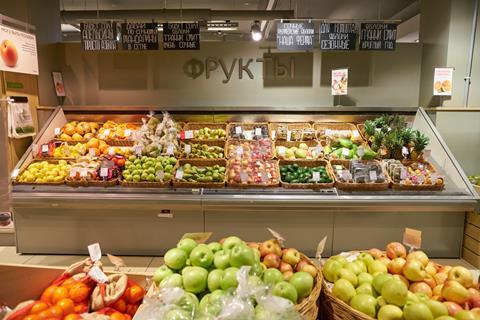Moscow’s alleged attempts to punish Moldova for pursuing closer relations with the EU have only driven the supplier closer to Europe, with Armenia in danger of following suit
In mid-July, Russia’s agricultural watchdog Rosselkhoznadzor introduced a ban on imports from 16 major Armenian fruit and vegetable suppliers, citing higher than permitted levels of pesticide residues on Armenian tomatoes and apples, according to Novaya Gazeta.
With Armenia highly reliant on neighbouring Russia, which accounts for a massive 90 per cent of its produce exports, many analysts believe the continuing ban has more to do with Armenia’s apparent drift toward western markets.

Nevertheless, the countries agreed that Russian officials would visit Armenia in late August to jointly inspect production, processing, storage and shipment sites for produce destined for Russia.
The tactic is nothing new. In 2006, Russia responded to attempts by Georgia and Moldova to move closer to the EU by banning wine from the two countries, claiming they contained unsafe amounts of heavy metals and pesticides.
Earlier this year, Russia halted imports of bananas from Ecuador after the latter sold Soviet-era weapons to the US, which intended to ship them to Ukraine.
Last year, Russia banned fruit and vegetables from Moldova on health grounds, amid worsening relations with the country’s pro-European president.
But the result has been to push Moldova further away, with companies seeking our more stable markets and choosing to invest in post-harvest handling to sell fruits to EU markets when the local season ends.
Back in 2018, Moldova exported almost 70 per cent of its apricots, cherries, peaches and plums to the Russian market, according to Emerging Europe. By 2023, this figure had dropped to 18 per cent.
The Moldovan Fruit Association said that last year the country exported 2,600 tonnes of sweet cherries to the EU. “It’s a huge amount, 12.5 times more than the year before,” said Iurie Fala, executive director of Moldova Fruct.
According to Cristina Ceban, state secretary at the Ministry of Economic Development and Digitalisation, Moldova exported nearly 74,000 tonnes of fresh plums last year, totalling US$38m. Exports to the EU were 2.6 times higher than the year before, at 60,443 tonnes, making Moldova the EU’s largest supplier of plums.
The same has largely been true for apples. In 2018, almost all Moldovan apples went to the Russian market. By 2023, this had dropped to half.



